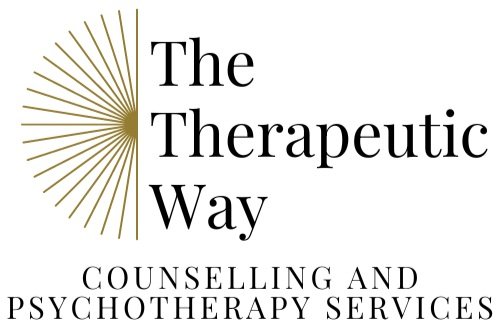
Therapy for Adults Navigating Difficult Parent-Child Relationships
Restoring connections, Mending hearts
Therapy for Adults Overcoming Childhood Emotional Neglect
Support for individuals, couples, and families. We provide a holistic approach that addresses the psychological, emotional, and behavioral aspects of family relationship fallouts. As an adult child, learn to cope with your emotions such as the grief and sadness, challenge your self-talk and insecurities, learn to manage distress, foster resilience and make healthy lifestyle and relationship changes.
Living Beyond Their Shadow ♡
Are you an adult child of a parent that had to listen to the criticisms and the ways you are not good enough? You had to endure the silent treatments or undeserved anger? You’ve tried to communicate rationally, but it does not get anywhere and they become the ‘victim’?
Growing up with emotionally distant parents can have lasting effects on your emotional development and relationships, often extending into your adulthood. Emotionally immature parents struggle to provide consistent emotional support, have difficulty regulating their own emotions, and may place their own needs and feelings above those of your own. As a result, you often carry feelings of confusion, frustration, and emotional neglect into your adult life.
You probably had to even take the role of a parent.
As an adult you may feel responsible for your parents’ emotional well-being, grappling with low self-esteem, or experiencing difficulty in forming healthy relationships. You may also struggle with setting boundaries or processing unresolved anger and hurt. Therapy offers a way to heal from the wounds of growing up in an emotionally immature household.
With our experienced therapist in Burlington, you will learn to identify patterns of behavior influenced by your upbringing, develop healthier coping and regulating strategies, and choose whether you want to establish stronger emotional boundaries with your parents and others. By processing the grief of unmet childhood needs, you can move toward greater self-compassion, emotional independence, and healthier relationships. Therapy helps break the cycle of emotional immaturity and fosters a greater sense of emotional balance and fulfillment.
THE THERAPEUTIC WAY
How Therapy Can Help You Heal?
Have a safe space to communicate and talk to each other with a neutral person in the room (in family therapy)
Manage emotional distress, grief, and sadness, related to relationship fallout
Coping techniques to manage triggers
Increase sense of self-worth, confidence, and autonomy
Reducing negative thinking, overthinking, worrying, and negative thoughts
Explore your childhood experiences, explore topics of forgiveness and moving forward
Being able to set boundaries, communicate assertively, and stop you from feeling like everything is your fault
Letting go of unrealistic expectations, fantasies, and false hope.
Therapy for Adult Children Navigating Parental Issues at The Therapeutic Way
We will explore the root causes of the attachment and relationship breakdown. We will look at your attachment styles, childhood experiences, unhealthy patterns in your relationships, your coping skills are more. We use research-based methods such as Cognitive Behaviour Therapy, Dialectical Behaviour Therapy, Narrative Therapy, Somatic Therapy, Mindfulness, and more to support you. We teach you relatable and practical strategies that will work for you.
By the third session, you’ll have a clearer understanding of the challenges you are facing, the dynamics of your relationships and how therapy will support you
By the sixth session, you’ll have learned ways to cope with the emotional distress, acknowledge the unhealthy patterns in your relationships, start moving from an insecure attachment to a more secure one, and start incorporating the skills your learned.
By the twelfth session, you’ll understand your attachment style more in depth and gain clarity in how you want to move forward, handle your situation better, have implemented some practical tools, and feel more confident in making meaningful choices.
Take the first step towards healing and book a therapy session today. You deserve to live a life filled with resilience, fulfillment, and inner peace.
THE THERAPEUTIC WAY TEAM
Therapists specializing in Healing Adult Children.
Syeda Zaidi
*Individual, Couples, and Family Therapist
Jillian Fischer
*Clinical Intern, low cost therapy
Vidhi Joshi
*Individual, Couples, and Family Therapist
Anumeet Sandhu
*Individual Therapist
THE THERAPEUTIC WAY
Frequently Asked Questions
-
Change and progress varies person to person. Normally, people start seeing change after a few sessions, whether you are coming in individually, as a couple, or as a family. We recommend booking minimum 12 sessions to start noticing change and keeping up with the change.
-
Reconciliation is not always the goal of therapy. The focus is on helping individuals heal from the emotional pain of estrangement, develop healthy coping strategies, and find peace within themselves, regardless of the outcome with the estranged family member(s).
If you are looking to reconcile, we will help you with that too. If you are looking for move forward without a family member in your life, we will help with that also. We will help you make the decision if needed.
-
Common issues include unresolved conflict, trauma, boundary setting, emotional neglect, codependency, and generational differences. Therapy can also address feelings of guilt, grief, anger, and loss associated with estrangement.
Feel more balance and connected in your personal family life!
We offer a 20 mins free consultation so we can discuss how therapy can help you.
FAQs
Please reach us at info@thetherapeuticway.ca if you cannot find an answer to your question.
-
Fees
Individual therapy: 50 mins, 75 mins, 90 mins: $150- $180
Couples therapy: 50 mins, 75 mins, 90 mins: $180- $250
Family therapy: 50 mins, 75 mins, 90 mins: $180- $250
Each therapist set their own fees based on their level of experience. Check out their profile for a detailed breakdown of their fees.
Sliding scale fee is set differently by each therapist
Cancellation fee is charged as follows:
Less than 24 hours before the appointment: 50% of session rate
No-show appointment: 100% of session rate
In case of illness or emergency, one time exemption and thereafter we require 24 hours notice
Arriving beyond 20 minutes late will require a re-scheduling of your appointment.
-
Yes, we do.
It is recommended that you reach out to your insurance provider before our session to confirm whether your services are covered by a registered psychotherapist and eligible for reimbursement.
After our session, you will be provided with a receipt that includes all the information required to submit to your insurer for reimbursement. If you have not been reimbursed, remember to keep your receipts to claim for tax deductions as medical expenses on your personal income tax filing.
-
The type of therapy that is best for you, depends on you as a person and the reason you are seeking therapy. There are different types of therapy, such as somatic-based therapy, cognitive behavioural therapy, trauma-informed therapies, holistic therapy, existential therapy, and more. The type of therapy that is right for you will depend what you are looking for. While you may have an input in this, majority of the time the therapist will know what is best suited for you and will let you know.
At The Therapeutic Way, we work with clients using an integrative approach to therapy, meaning using different modalities to suit your needs. We use a trauma-informed, holistic, and relational approach to working with you. Click here to learn more.
-
The difference between psychotherapist, psychologist, and psychiatrist, depends on education and scope of practice.
Psychotherapist, psychologist, and psychiatrist can provide therapy called talk therapy.
A psychotherapist can provide therapy under the College of Registered Psychotherapist of Ontario, a psychologist can provide therapy under the College of Psychologists of Ontario, and a psychiatrist can provide therapy under College of Physicians and Surgeons of Ontario.
Difference:
Psychotherapist Education: Master’s Degree or higher
Psychologist Education: PhD or PsyD.
Psychiatrist: MD
————
Psychotherapist: Can’t diagnose
Psychologist: Can do assessment and diagnose
Psychiatrist: Can do assessment, diagnose, and prescribe medication
————
Psychotherapist Training: Counselling and focus on therapy techniques
Psychologist: Focus on clinical research and assessment
Psychiatrist: Use medical treatment such as prescribing medications for mental health conditions
Before seeking help, it’s important to know what you need and are seeking. A consultation call can help you decide.
At The Therapeutic Way, we are registered psychotherapists with the College of Registered Psychotherapist of Ontario.
-
The term psychotherapy and counselling are often used interchangeably with some slight differences. Psychotherapy refers to the treatment based for psychological disorders and mental health issues, such as depression, anxiety, PTSD, etc. Counselling refers to wellness support and providing insights and clarity which leads to growth or personal betterment.
At The Therapeutic Way, we provide both psychotherapy and counselling.
-
Online therapy is as effective as in person therapy. What is most important with any format of therapy is the strong therapeutic relationship between you and your therapist. Online therapy is a good option when coming in-person is not feasible, when you have dependents at home, and it is also more convenient.
At The Therapeutic Way, we offer online therapy and therapy by phone from the convenience of your home. Click here to learn more about our online therapy.





